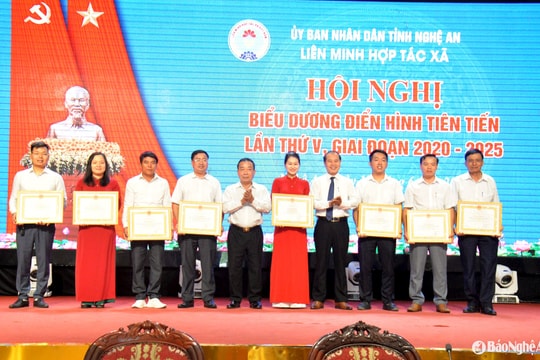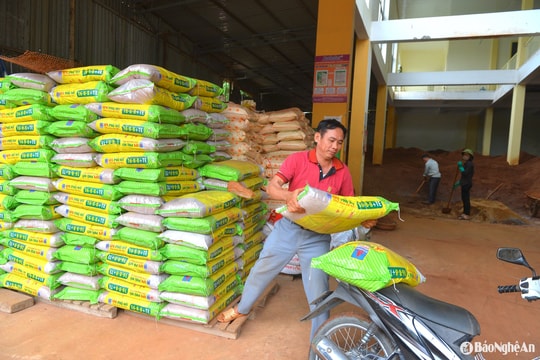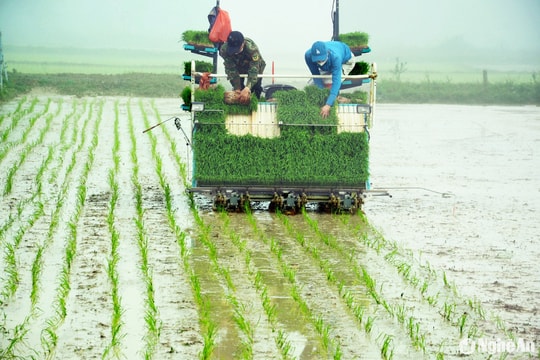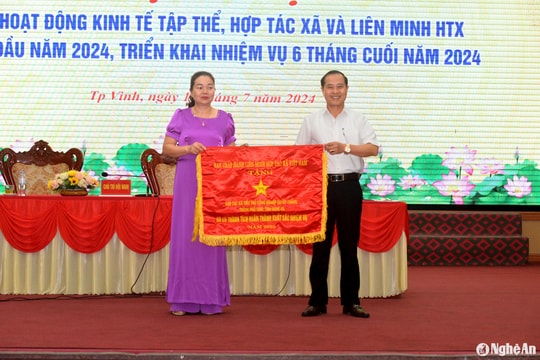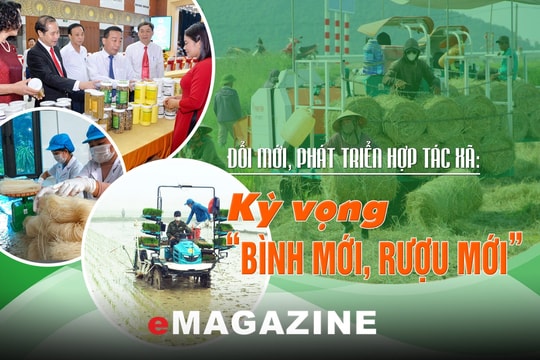Nghe An: Focus on developing a dynamic and effective collective economy
(Baonghean.vn) - After 20 years of implementation, the collective economic sector with the core being cooperatives of Nghe An province has had positive changes in both quality and quantity, demonstrating the important role of this sector in the socio-economic development of the province in general and rural areas in particular.
On the morning of September 13, under the chairmanship of comrade Hoang Nghia Hieu - Member of the Provincial Party Committee, Vice Chairman of the Provincial People's Committee, the Provincial People's Committee, the Steering Committee for Collective Economic Development (KTTT) listened to and gave opinions on the draft Summary of 20 years of implementing Resolution No. 13-NQ/TW dated March 18, 2002, the 5th Conference, the 9th Party Central Committee on continuing to innovate, develop and improve the efficiency of KTTT.
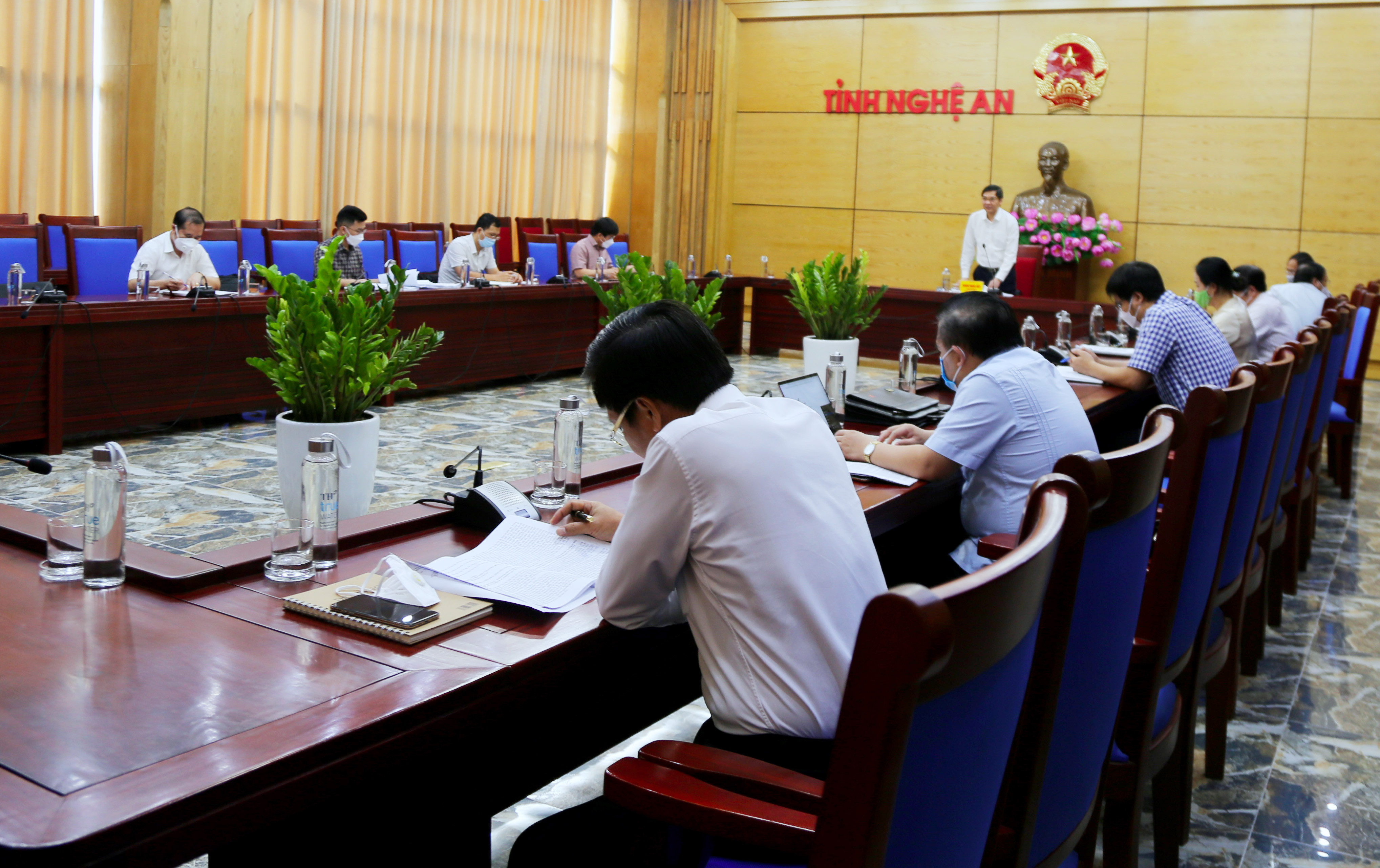 |
| Delegates attending the meeting gave their opinions on the summary of 20 years of implementing Resolution No. 13 on continuing to innovate, develop and improve the efficiency of the market economy. Photo: Thu Huyen |
Interested in large-scale new cooperative models
Resolution No. 13- The Resolution/TW has been seriously implemented by Nghe An province, from studying, thoroughly understanding, and institutionalizing the Resolution, to organizing the implementation of the tasks set forth in the Resolution.
It is expected that by the end of 2021, the province will have 822 cooperatives, with cooperative revenue and workers' income improving. The contribution of collective economy to the province's GRDP is increasing (in 2001, collective economy contributed 4.8% of the province's GRDP; in 2020, it reached 6.8%). The number of cooperatives has increased year by year, and the quality of operations has improved. Cooperatives have gradually operated in their true nature, focusing more and more on supporting member households' economies through providing services or jobs for members, especially agricultural cooperatives. The scale, capital and areas of operation of cooperatives have been expanded.
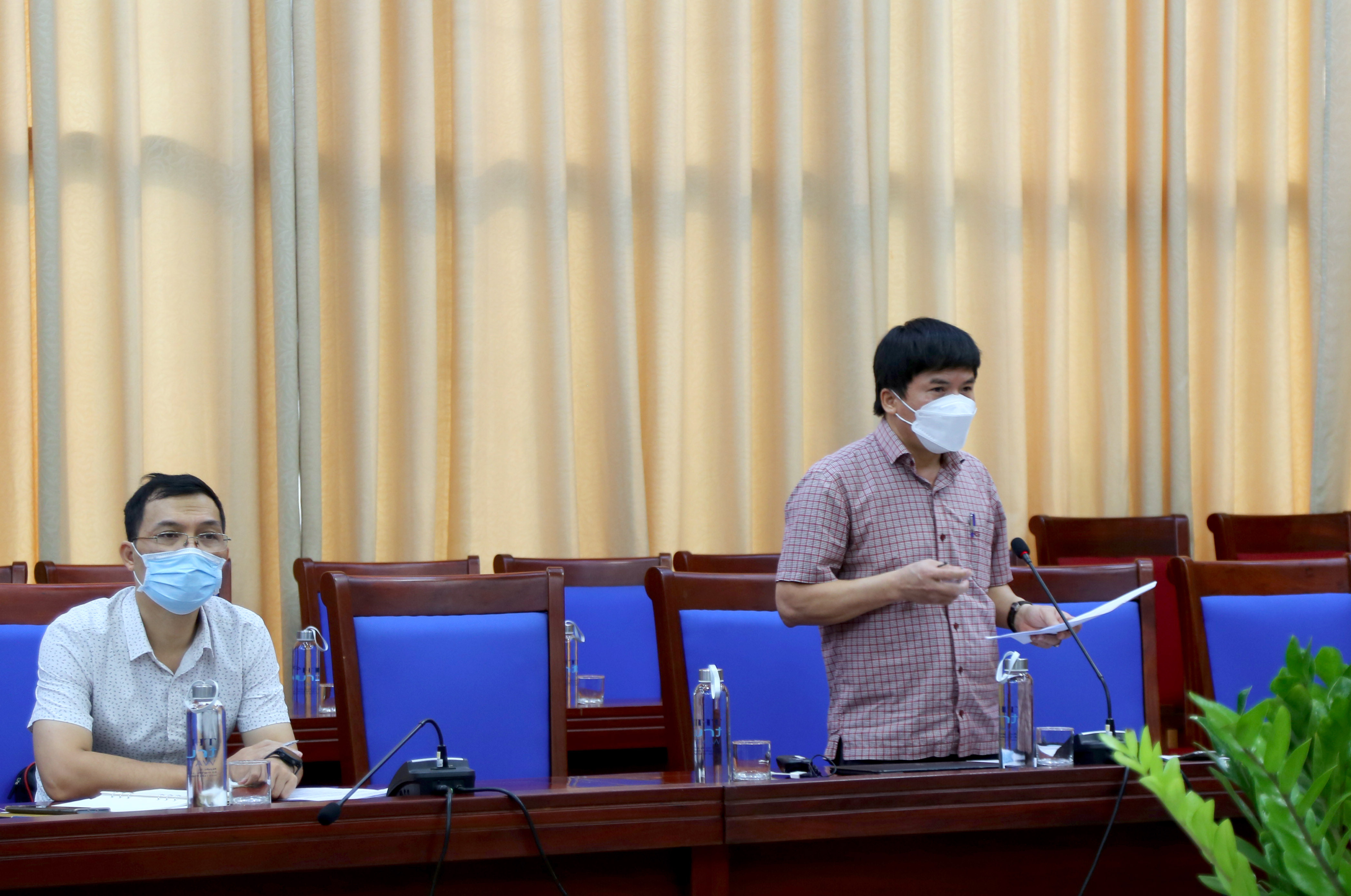 |
| Deputy Director of the Department of Planning and Investment Phan Van Hoan presented the draft report. Photo: Thu Huyen |
Nowadays, many new cooperative models have appeared, with creative and unique ways of doing things.Startup Cooperativeof young cadres has linked production, processing and product consumption; some cooperatives undertake input services and consume all products for farmers.
However, the implementation of Resolution No. 13-NQ/TW still has some limitations, that is, the study and dissemination of the Resolution in some places is not very effective; some mechanisms and policies issued are not close to the actual situation; State management of collective economy and cooperatives still has some limitations. Collective economy development is not really effective, not fully exploiting the potential of cooperatives; The dissemination and replication of effective cooperative models have not been widely implemented to help people believe in the economic and social benefits brought by cooperatives...
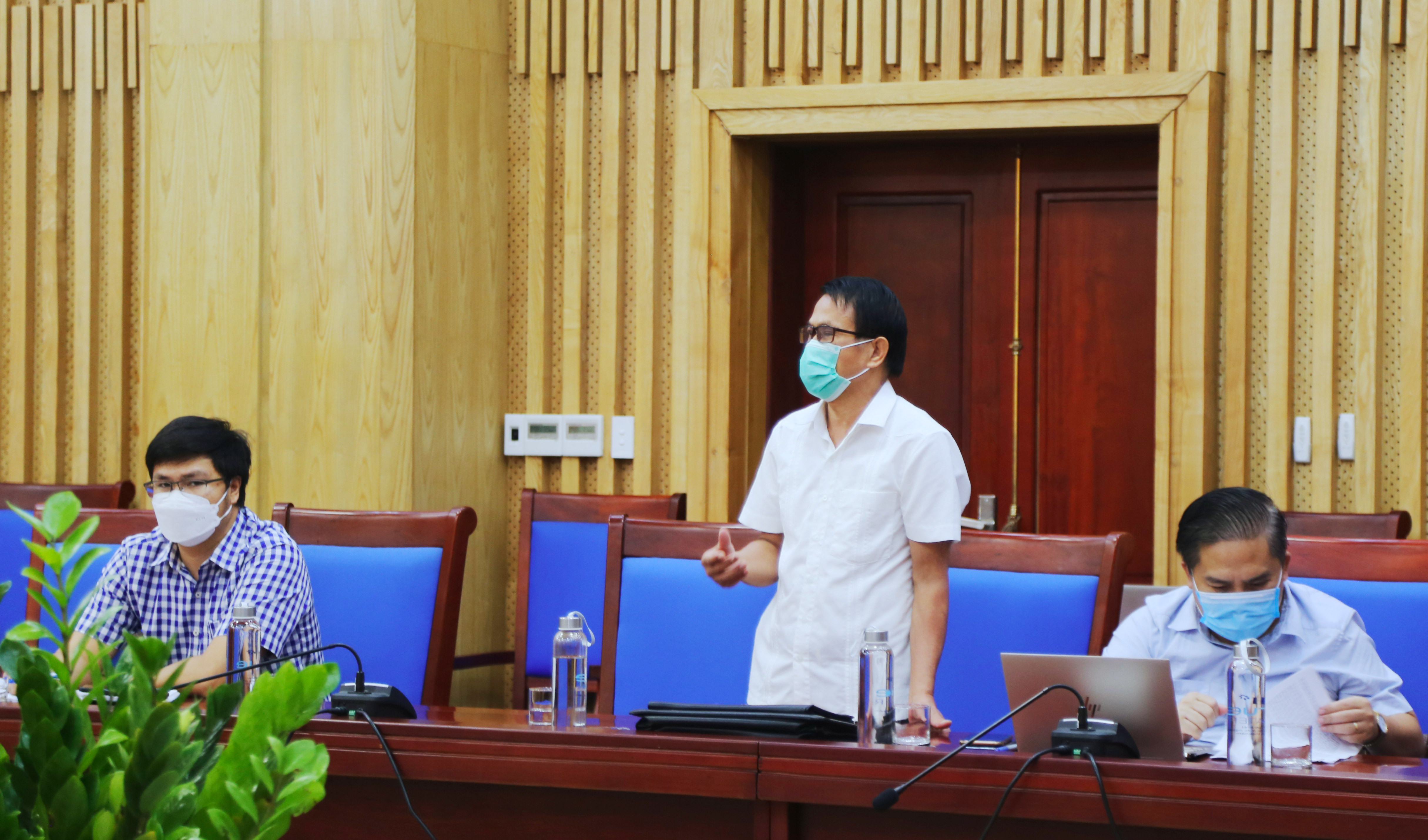 |
| Deputy Director of the Provincial Rural Development Department Hoang Dinh Hung speaks. Photo: Thu Huyen |
It is expected that by December 31, 2021, the total number of effectively operating cooperatives will be 435 (accounting for 55%), compared to December 31, 2001, an increase of 353 cooperatives (an increase of 5.3 times). The total operating capital of cooperatives is VND 5,300 billion; the total asset value of cooperatives is VND 3,800 billion; the average annual revenue of a cooperative is VND 2,100 million; the average annual profit of a cooperative is VND 160 million; the average income of a regular worker in a cooperative is VND 4.5 million/month.
Continue to improve collective economic efficiency
From the above issues and on the basis of practical experience in collective economic development in the province in recent times, at the meeting, members of the Steering Committee studied and clarified some contents on the viewpoints in Resolution No. 13-NQ/TW.
That is to clarify more about the ownership of members and collective ownership; the ownership of cooperatives and enterprises in linking production and consumption of products when enterprises invest in cooperatives; Clarify more about the distribution according to the level of use of products and services, about the benefits of cooperative members; There needs to be separate policies for the development of collective economy and cooperatives in ethnic minority areas, mountainous areas, and areas with special difficulties.
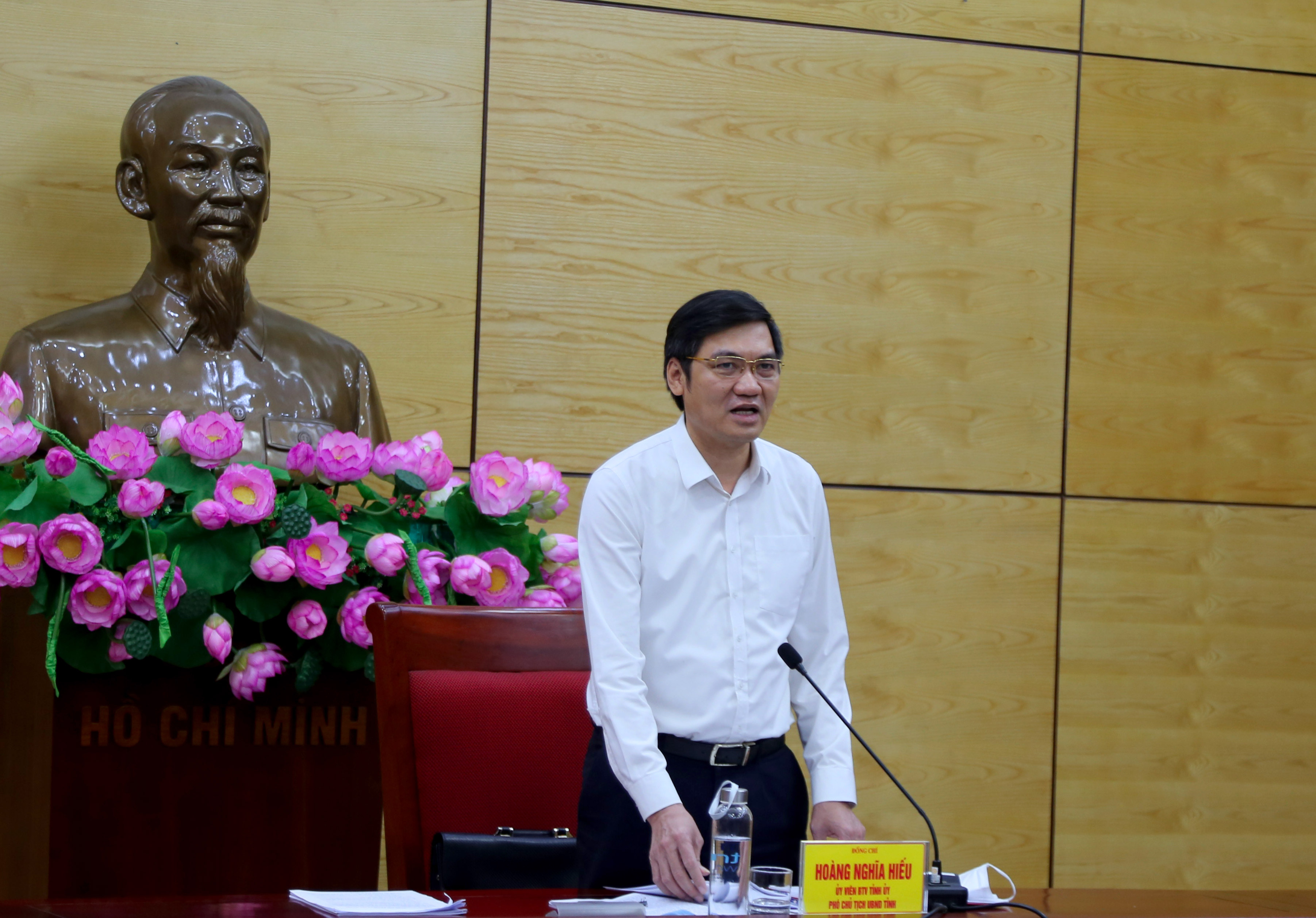 |
| Vice Chairman of the Provincial People's Committee Hoang Nghia Hieu delivered a concluding speech at the meeting. Photo: Thu Huyen |
Regarding the encouragement of the accumulation and effective use of collective capital in cooperatives, according to the provisions of the 2012 Law on Cooperatives, it is proposed to stipulate the establishment of a development investment fund at a higher minimum level so that cooperatives can accumulate this fund at a higher level, facilitating investment in production and business development.
After listening to the delegates' comments and concluding remarks, the meeting was concluded.Vice Chairman of Provincial People's Committee Hoang Nghia Hieuaffirming that economic zones and cooperatives play a very important role, contributing to the implementation of progress, social equity and promoting rapid and sustainable socio-economic development.
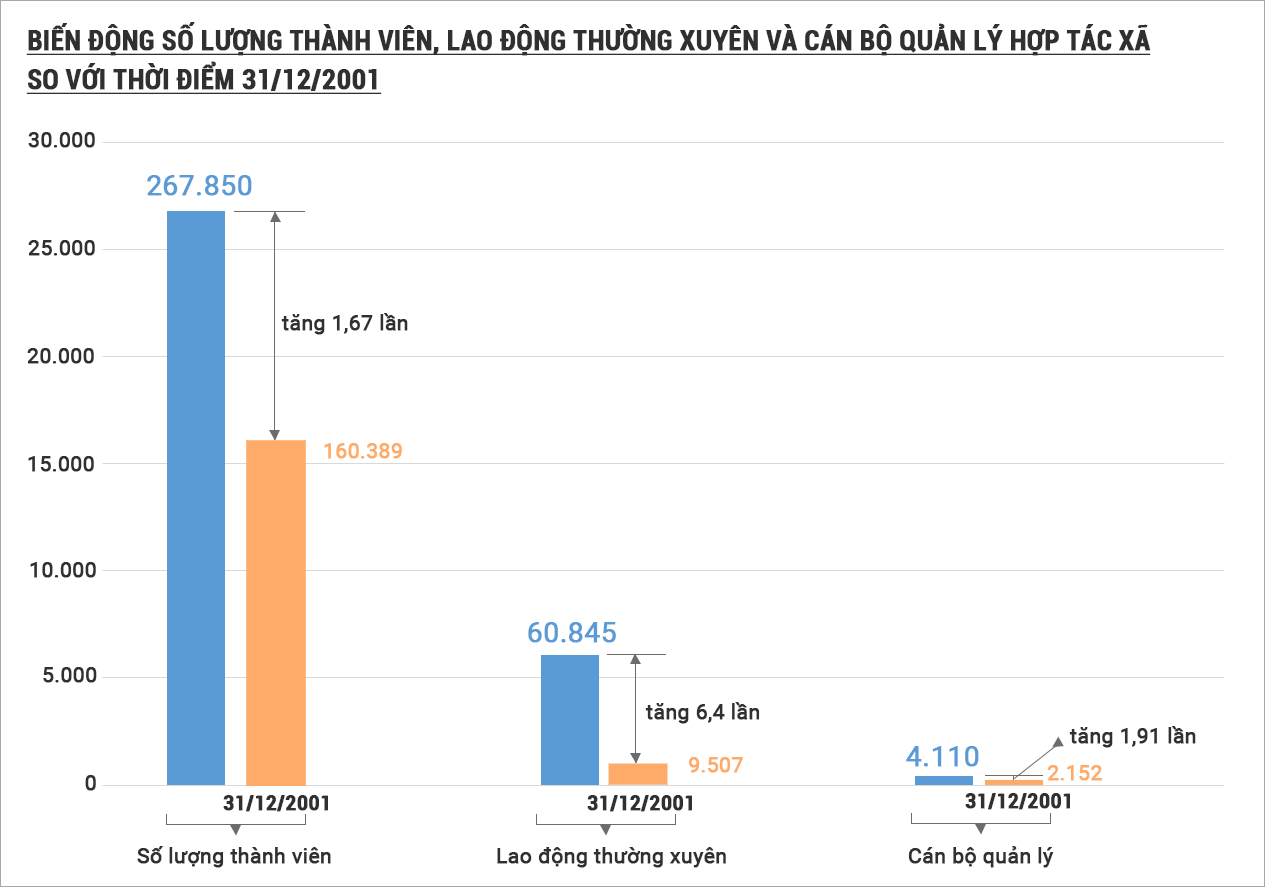 |
| Chart of changes in the number of members, regular workers and cooperative staff in 2021 compared to 2001. Graphics: Lam Tung |
Based on the analysis of the results achieved as well as the limitations that need to be overcome, in the coming time, in order for KTTT to develop well, the Vice Chairman of the Provincial People's Committee suggested that it is necessary to strengthen chain management, monitoring from raw materials for farming, preliminary processing, circulation... to processing and preservation to ensure food safety and hygiene. Promote horizontal linkages between producers and vertical linkages along the product value chain, especially for export products. Pay attention to establishing cooperative models operating on an inter-commune and inter-district scale associated with the development of key products of the province.
“For the collective economy to develop, there is no other way but to promote the development of cooperatives and production cooperatives, associated with the application of science, technology, high technology, 4.0 technology, food safety, and large-scale production of goods with uniform quality. Thereby, gradually meeting the requirements of the stable consumption market in terms of quantity and quality; strengthening the linkage between cooperatives with each other and with enterprises” - Vice Chairman of the Provincial People's Committee Hoang Nghia Hieu emphasized.
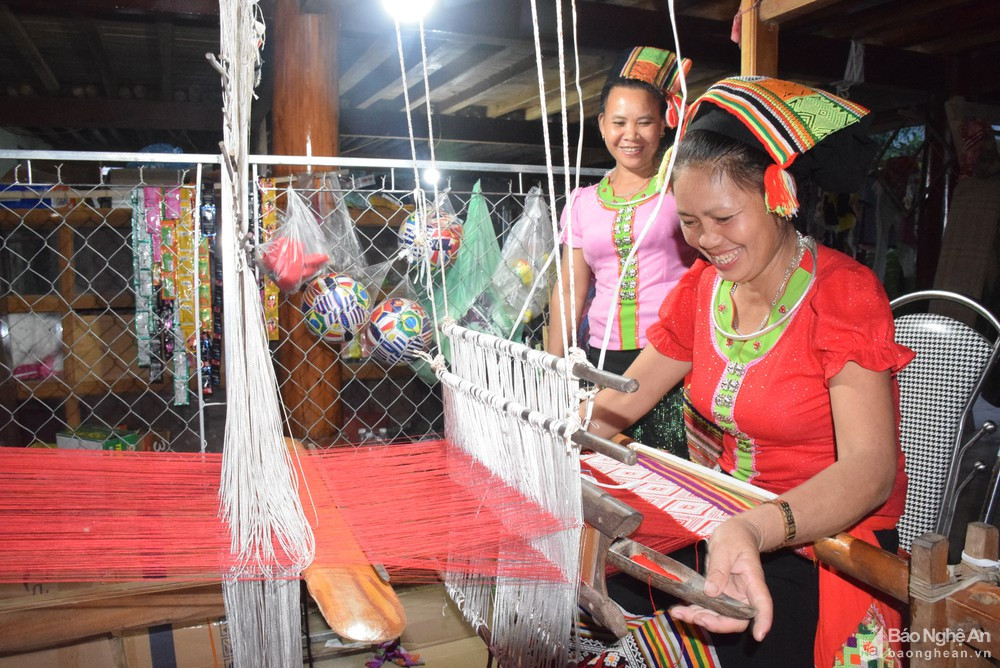 |
| Developing brocade weaving in Thai Minh village, Tien Ky commune. Photo courtesy of Xuan Hoang |
At the meeting, Nghe An province also proposed and recommended to the Government, the Prime Minister, the Ministry of Planning and Investment and central ministries and branches a number of related contents to continue developing and improving the efficiency of collective economy and cooperatives in Nghe An province in particular and the whole country in general.
Target by 2030
On average, each year Nghe An develops about 20 new cooperatives, 40 - 45 cooperatives (of which, about 35 - 40 are agricultural cooperatives); in the period of 2021 - 2030, about 4 new cooperative unions will be developed. Eliminate communes without cooperatives; attract 60 - 70% of rural laborers to participate in the collective economy and cooperatives. About 79-80% of cooperatives operate effectively. About 50% of agricultural cooperatives are linked with enterprises according to the value chain; 100% of cooperatives implementing the value chain participate in trade promotion activities. 100% of cooperative managers are trained in professional skills. The average income of a regular worker in a cooperative is about 12 million VND/month.

